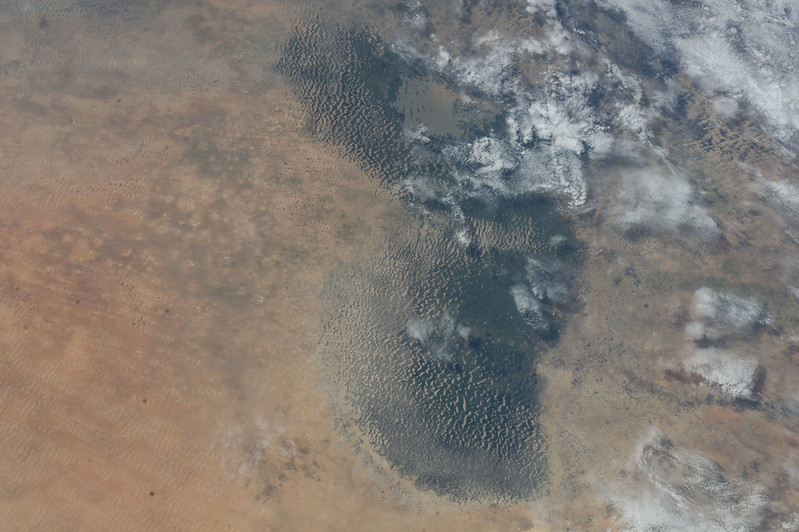Mark Kersten is a PhD student in LSE’s Department of International Relations. So far all the debate about a post-conflict Libya has centred on the fate of Colonel Gaddafi, Kersten argues that it is of major importance that the role of the Libyan leader’s son, Saif al-Islam, is also considered. This post also appears in Mark Kersten’s Justice in Conflict blog.
It is nothing short of stunning how little we hear about Gaddafi these days. Articles in papers, posts on blogs, discussions amongst friends – virtually everywhere, even in discussions about peace and justice in Libya, Gaddafi is no where to be seen or heard. It is just bizarre.
I realize that, in reading the above, readers may think that I have gone off the deep-end. After all, few people have commanded so many headlines in recent weeks and months as Gaddafi! The focus of this post, however, is not Colonel Muammar Gaddafi but rather his son, LSE alumnus and fellow ICC-indictee Saif al-Islam Gaddafi. It is not simply that his role in peace negotiations and his fate in a post-conflict Libya remain unclear – Saif’s role and fate have been entirely ignored.

Many observers have been increasingly agitated by the about-face of the Western states in Libya. Where once they presented themselves as stewards of international criminal justice, demanding that Colonel Gaddafi be detained and brought to the ICC, now they are suggesting Gaddafi can remain in Libya with a de facto amnesty. In a New York Times op-ed, Richard Dicker, the director of Human Rights Watch, tackled the issue:
“After setting the wheels of justice in motion, all Security Council members — and these three countries in particular — should be reaffirming the message that impunity is no longer an option, instead of proffering a get out of jail free card to end a military stalemate.”
The International Criminal Court predictably takes a similar stance.
Unfortunately, both Dicker and the ICC fall into the same trap as so many other observers and reporters – exclusively focussing on the fate of Colonel Gaddafi. While the world zeros in on father Gaddafi, however, it is his son, Saif al-Islam who may pose the greatest threat to international justice.
Prior to the ICC arrest warrants being issued, it was the belief and hope of many international diplomats that Saif al-Islam Gaddafi could be the leader of a reformed and increasingly progressive Libya. Saif is an LSE alumnus who had spoken and written positively about democratization and the role of civil society. He had become cozy, perhaps too cozy, with Western leaders and diplomats. He leaned West and many attributed Libya’s abandonment of its nuclear program to what they viewed as the moderate, reasonable and reasoned son of Gaddafi. According to numerous accounts, many government officials in the West expressed regret that the ICC had decided to indict the man they saw as a possible partner in a post-Colonel Gaddafi, post-crisis Libya.
Since the ICC arrest warrants for the “Tripoli Three” were issued and since the shock value of an LSE-alumnus being pursued by the Court diminished, very little has been written about Saif al-Islam. This may suit Western governments just fine. As I have previously argued, it is entirely possible that these governments continue to view Saif as someone they can negotiate with. Certainly their silence and their about-face regarding the fate of Colonel Gaddafi suggests the issue of Saif’s indictment does not stand in the way of him having a role in post-conflict Libya!
The rebels’ National Transitional Council (NTC) has also made no rigid demands on either Saif’s place in peace negotiations nor his fate once the war concludes. Like external parties, their focus has been solely on excluding Colonel Gaddafi from any negotiation.
If, as reported, Colonel Gaddafi may be allowed to stay in an adjacent room during negotiations, it seems even more likely that Saif al-Islam will have his place at the negotiating table. Who, after all, would the Colonel trust more to represent his interests than his own son and de facto number two in Libya?
Given the military stalemate, peace negotiations in Libya will almost surely result in some form of a power-sharing agreement between pro-rebel forces and the Gaddafi regime. The attitude of both the NTC and the international community appear to be setting the ground for Saif to hold a significant position, if not a key leadership position, within a power-sharing deal.
Advocates of international criminal justice and the ICC in particular should be wary of the role Saif plays in peace negotiations between pro-Gaddafi forces and the rebels. Just as importantly, they should start talking about it. By focussing myopically on Colonel Gaddafi’s role and fate, international organizations, human rights advocates, governments and diplomats inadvertently create the space for Saif to emerge as a key player at the negotiating table and in post-conflict Libya. While his name and face may not be plastered on newspapers around the world, it is Saif al-Islam Gaddafi who may, in the end, undermine international criminal justice the most in Libya.





Congrats. This is a typical academic article. Readers can take from it what they want, but the writer, no matter the outcome, can say that he told us so.
The true answer is that the media has served its role. Nobody knows anymore why NATO started the war. Is it that the West, especially England and France has become so morally bankrupt that just any old excuse is good enough to attack a country with oil or other valuable mineral riches.
The fact is that most of the propaganda against Gaddafi has been shown to be false. He cared well for all his citizens. It seems that the liberals of the West would like to see a success country turned into another African failure. Below the equator there is, now, not even one country left that understands or use principles of sound government. South Africans are gallantly trying, but big money bribers sees to it that the ANC top brass look only after themselves. Within two years, starvation of certain sections of the SA community will become effective while the top brass lives better than the Richest British.
If NATO was so worried about “democracy and freedom”, why don’t they just send two dozen soldiers to Zimbabwe to oust Mugabe. If there was a justifiable case for intervention; Zimbabwe is it. Sadly, Zimbabwe has no oil or any other thing that the wolves of the west can plunder. Ousting Mugabe will be justifiable and will cost one Billionth of the price.